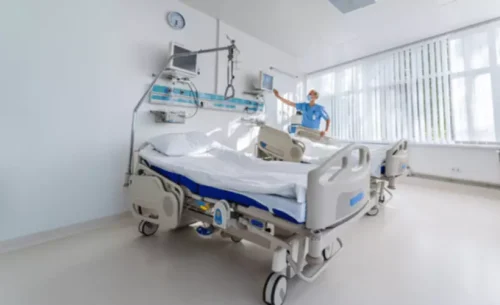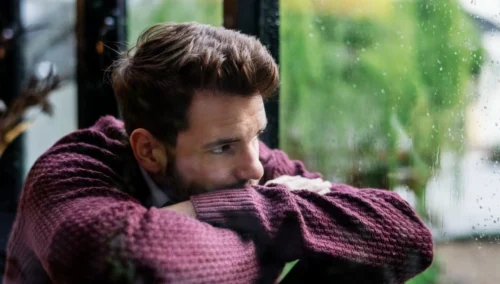
Prolonged alcohol consumption can lead to various eye diseases and disorders, while chronic abuse can result in toxic effects on the ocular system. By addressing these underlying causes and taking steps to rehydrate and rest blurry vision after drinking alcohol the eyes, blurry vision during a hangover can be alleviated. If you notice a glassy appearance in your eyes or a loved one’s, it may be a sign of alcohol use disorder. Our admissions team is here to provide you with comprehensive care and support at every stage. Our dedicated team understands the complexity of substance use disorder, including its negative effects on eye health and overall well-being.
- Alcoholic amblyopia, also known as “toxic amblyopia,” is another vision-related condition that can occur due to excessive alcohol consumption.
- This can lead to difficulties in focusing and processing visual information, resulting in blurry vision.
- Instead, eye floaters are usually a common and harmless condition resulting from changes in the vitreous, a gel-like substance that fills the back of the eye.
Begin Recovery Now
A deficiency in these nutrients can lead to night blindness, optic nerve damage, and increased risk of age-related vision problems. Chronic alcoholism is linked to a condition called toxic amblyopia, which results from prolonged exposure to alcohol and poor nutrition. This condition damages the optic nerve, leading to irreversible vision https://ecosoberhouse.com/ loss. Additionally, long-term alcohol use can contribute to retinal damage, which affects the ability to perceive colors and see clearly.

Can alcohol cause damage to the optic nerve in the long term?
What most people don’t know, though, is that the liver and the eyes are closely related. In fact, everything is related in the body, which is why paying attention to your holistic health is so important. If you find yourself experiencing vision problems related to alcohol consumption, seeking treatment should be a priority. The first step is often consulting with an eye care professional who can assess your symptoms and recommend appropriate interventions based on your specific needs.
Can alcohol consumption cause temporary blurriness in vision?

The Centers for Disease Control and Prevention (CDC) defines moderate drinking as up to one drink per day for women and up to two drinks per day for men. To prevent the temporary blurriness often experienced after drinking, it is advisable to consume alcohol in moderation. Limiting alcohol intake and staying hydrated can help minimize the impact on the visual system. Additionally, taking breaks between alcoholic drinks and ensuring a balanced diet can also contribute to reducing the risk of experiencing blurry vision.
Another long-term effect of alcohol on vision is the potential for damage to the optic nerve, which transmits visual information from the eye to the brain. Prolonged alcohol abuse can lead to a condition known as alcoholic optic neuropathy, which results in vision loss and difficulty with color perception. However, there are several underlying health conditions that can cause blurry vision after drinking alcohol and may require further evaluation. One such condition is alcohol-induced optic neuropathy, which is damage to the optic nerve caused by alcohol toxicity.
- However, if your struggle is at the level of addiction, you may need to avoid these options since they could trigger cravings and relapse.
- Effect – Getting closer to the end of Dry January you will start to benefit from a healthier liver, as it sheds excess fat and full function is restored following your abstinence.
- Nystagmus may sometimes cause you to lose balance or to have trouble balancing yourself while standing for long periods of time.
- The Centers for Disease Control and Prevention (CDC) defines moderate drinking as up to one drink per day for women and up to two drinks per day for men.
- It is primarily caused by factors such as dehydration, changes in blood pressure, alcohol metabolism, and impaired eye muscle coordination.
- Fortunately, there are several ways to alleviate blurry vision during a hangover.
Short-term effects of alcohol on the eyes
Your vision relies on a few different functions that your brain and eyes carry out, and alcohol impairs more than one of these functions. These are short-term effects that can begin while you are drinking, and can last for several hours afterward. Short-term effects may result from intoxication, which people often describe as “being drunk.” This occurs when alcohol affects the central nervous system.
- Alcohol can exacerbate the effects of diabetes by causing blood sugar levels to fluctuate.
- To minimize the occurrence and duration of blurriness, it is best to drink alcohol in moderation and stay hydrated.
- The lens of the eye is responsible for focusing light onto the retina, which allows us to see clearly.
- Prolonged consumption of alcohol affects eye health by altering blood pressure and pupil size, which are responsible for our ability to see clearly.
- Symptoms of FAS tend to worsen with age, so a child’s eyesight is unlikely to improve over time.
- Taking breaks from activities that strain the eyes, such as reading or using electronic devices, can also be beneficial.
- The images being sent from the brain to the eyes are not being interpreted correctly or take a longer time to process.
Increased Sensitivity to Light
- Drinking too much alcohol can have negative effects on various parts of the body, including the eyes.
- They can assess any underlying health conditions or provide guidance on managing the symptoms.
- As you reflect on your drinking habits, consider how they may be impacting not just your overall health but also the health of your eyes.
- By taking these proactive steps, you can enjoy social occasions while safeguarding your eyesight and overall well-being.
- Since alcohol is a diuretic, it contributes to dehydration, which directly affects tear production.
- These effects are usually temporary and improve as the body processes and eliminates alcohol.
You may also notice a slight weight loss as you cut out the empty calories, this will also contribute to lowering your blood pressure. Research has shown that heavy drinkers are at a higher risk of developing cataracts compared to moderate drinkers or non-drinkers. Alcohol can cause blood vessels in the eyes to dilate, leading to redness and irritation.
How Much Does Alcohol Rehab Cost? A Complete Guide to Treatment Prices and Options

The reasons are unclear but seem to arise from nutritional deficiencies triggered by alcohol use. The calories in alcoholic drinks are “empty,” meaning they contain little nutritional value. This reaction raises your blood sugar levels while your body metabolizes the alcohol. These blood sugar spikes cause blurry vision, which becomes more dangerous when you combine the effects with reduced visibility during evening darkness. Long-term Drug rehabilitation abuse of alcohol can also lead to toxic amblyopia or vision loss. Both short-term and long-term use of alcohol affects the optic nerve and the relationship between the brain and the eye.

It can be quite unsettling and may cause concern for individuals experiencing it for the first time. Blurred vision can manifest in different ways, such as a hazy or cloudy vision, difficulty focusing, or seeing double. In this article, we will discuss how long blurry vision typically lasts after drinking alcohol and some possible causes. If you experience any vision changes or eye problems after drinking alcohol, get immediate medical attention from an eye doctor. Early detection and treatment are crucial in preventing vision loss and complications.
